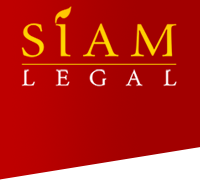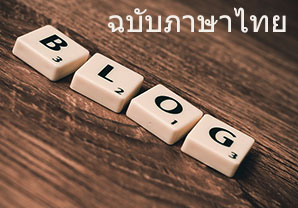Registering a Trademark under Thai Law
An important principle of Thai trademark law is that words directly referencing the quality or character of the goods will not be deemed distinct and cannot be registered as a trademark. Section 7(2) of the Trademark Act of B.E. 2534 (1991). However, paragraph three of Section 7 also states that a trademark may also be registered if it is proved that the trademark has been widely sold or advertised in accordance with the relevant Ministerial Regulations.1 Therefore, a common problem that arises in trademark applications is whether a trademark directly references the quality or character of the goods. The following Thai Supreme Court decisions help to shed light on this issue.
Thai Supreme Court Decision No. 7690/2556
Plaintiff attempted to trademark the English words “HYDRO SAFE” for goods category 3 (referring to hairstyling gel, creams, etc.) which was rejected by the Registrar on the basis that the words directly reference the quality or character of the goods. The Court ruled in favor of the Registrar and analyzed the issue as follows:
- According to the English-Thai Dictionary (Library Edition) by Professor Wit Buranatam, the English word “HYDRO” refers to electricity generated by water power or is used as a prefix to refer to water. As for the English word “SAFE”, it refers to safety or the state of not receiving harm or danger. Together, the words can be understood to mean water power, water, or hydrogen that is safe or not dangerous.
- The Court took note of the fact that hairstyling gels are products that necessarily depend on chemicals in order to be used for their intended effect. Furthermore, the Court studied the words written on the packaging of Plaintiff’s product to arrive at the conclusion that the words “HYDRO SAFE” were intended to communicate to consumers that the chemicals used in their hairstyling gels contain hydrogen that is safe to use. Therefore, the Court concluded that the trademark in dispute did refer to the quality or character of the goods.
- Plaintiff also argued that the trademark could be registered on the basis of being widely sold and advertised. In support of this, Plaintiff submitted that the trademark had been registered, as well as widely distributed and advertised, in several countries all over the world. However, there was no evidence that the Plaintiff’s products were widely distributed or advertised in Thailand to the point where the general public or people in the relevant field recognized the trademark. Therefore, the Court denied Plaintiff’s argument.
Thai Supreme Court Decision No. 9466/2554
Plaintiff attempted to register the trademark “BIOFRESH” for goods category 11 (referring to refrigerators and freezers) which was rejected by the Registrar for referring directly to the quality or character of the goods. In affirming the rejection, the Trademark Board held that according to the New English-Thai Dictionary by Professor Wit Buranatam, the English words “BIO” a prefix meaning life and “FRESH” meaning fresh, new, or clear, when taken together mean something to the nature of “maintaining a state of freshness.” The Trademark Board ruled that the trademark directly referred to the quality or character of the goods because it was describing the working capacity of the refrigerators or freezers. The Thai Supreme Court reversed the ruling of the Trademark Board and held in favor of Plaintiff.
The Court first noted that the words “BIO” and “FRESH” when compounded together as “BIOFRESH” actually do not have any definition in the dictionary. Therefore, “BIOFRESH” is an invented term. Furthermore, even if one were to go according to the literal meaning of the two words taken together, which would be “living things that are fresh”, the words only serve as a “suggestive mark”. The Court defined a suggestive mark to mean a trademark that only serves to recommend its product to the consumer. In this case, “BIOFRESH” would allow consumers to imagine that Plaintiff’s products would help keep their meats, vegetables, etc. in a fresh condition.
If your trademark has been rejected in Thailand, there may be grounds to appeal the rejection. However, the Thai trademark law is complex. Therefore, you should always consult competent legal counsel.
_____________________
1 Announcement of the Ministry of Commerce Re: Rules for Proving Distinctiveness According to Section 7 Paragraph 3 of the Trademark Act of B.E. 2534 issued on June 12, 2003
Category: Administrative Law, Business in Thailand
About the Author (Author Profile)
Siam Legal is an international law firm with experienced lawyers, attorneys, and solicitors both in Thailand law and international law. This Thailand law firm offers comprehensive legal services in Thailand to both local and foreign clients for Litigation such as civil & criminal cases, labor disputes, commercial cases, divorce, adoption, extradition, fraud, and drug cases. Other legal expertise of the law firm varied in cases involving corporate law such as company registration & Thailand BOI, family law, property law, and private investigation.











